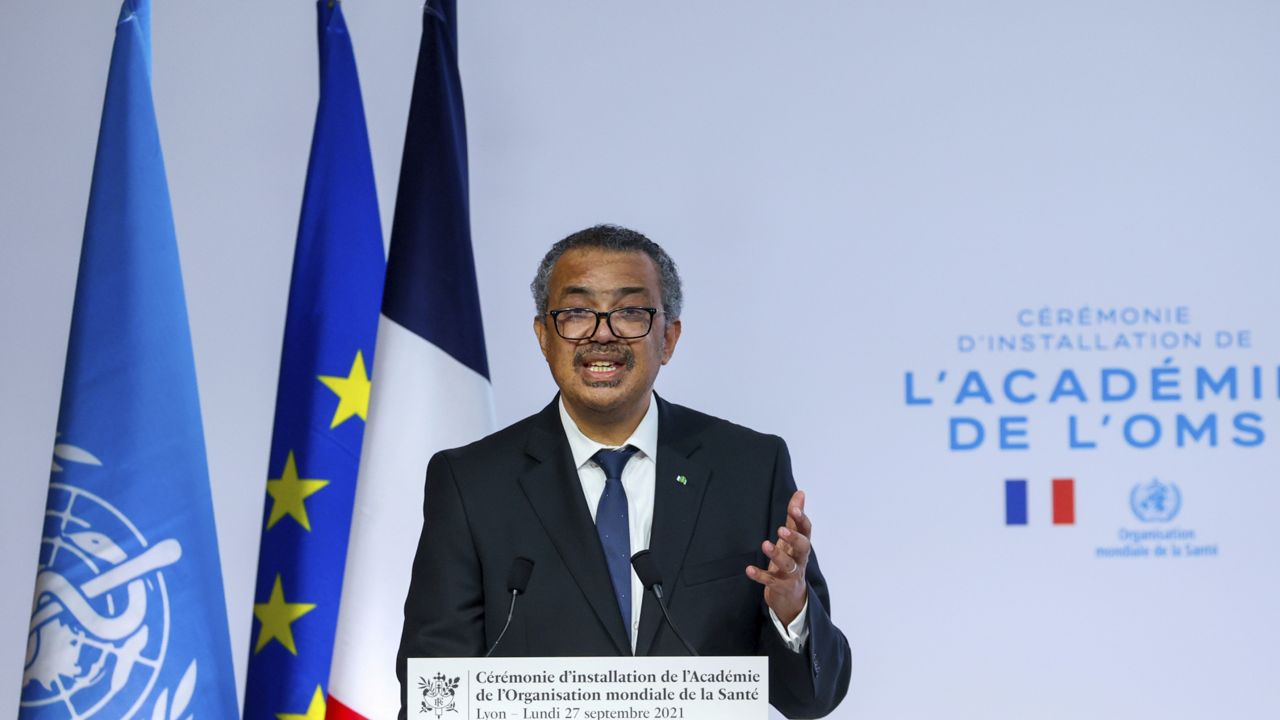World leaders will soon come together to work towards a “historic global accord” on pandemic preparedness, prevention and response, officials from the World Health Assembly announced Wednesday.
The assembly is the decision-making and governing body of the World Health Organization, which represents 194 member states, including the United States.
Under the new proposal, the World Health Assembly will launch a working group (formally known as an intergovernmental negotiating body, or INB) composed of representatives from member states. The INB will “negotiate a convention, agreement or other international instrument” on how to prevent and respond to future pandemics.
The group will hold its first meeting on March 1, 2022; a subsequent session will take place on August 1, 2022. A complete recommendation is expected by 2024.
“The COVID-19 pandemic has shone a light on the many flaws in the global system to protect people from pandemics,” a statement from Dr. Tedros Adhanom Ghebreyesus, WHO Director-General, read in part.
“But at the same time, we have seen inspiring demonstrations of scientific and political collaboration, from the rapid development of vaccines, to today’s commitment by countries to negotiate a global accord that will help to keep future generations safer from the impacts of pandemics,” he added.
The World Health Assembly announced the new operation after a recent special session meeting from Nov. 29 - Dec. 1, the second time the group has convened such a session since its founding in 1948.
Once the INB has identified an instrument or instruments to deal with global pandemics, the WHO plans to adopt the proposal under Article 19 of its constitution, which gives it the power to “adopt conventions or agreements” to issues under its purview with a two-thirds vote of Health Assembly members.
Party states must then adopt the requirements in accordance with its national laws.
The WHO’s announcement comes amid rising concerns over global spread of the omicron variant of COVID-19, which led wary countries to issue travel advisories tailored particularly towards countries around South Africa, where the variant was first identified.
Scientists recently said the variant was circulating in Europe before it was sequenced in Africa. While there are not yet any reported cases in the United States, the WHO on Monday said the risk of global spread remains “very high.”
But the WHO also warned against travel advisories impacting only a few countries, saying they will likely be ineffective and only serve to punish developing nations.



